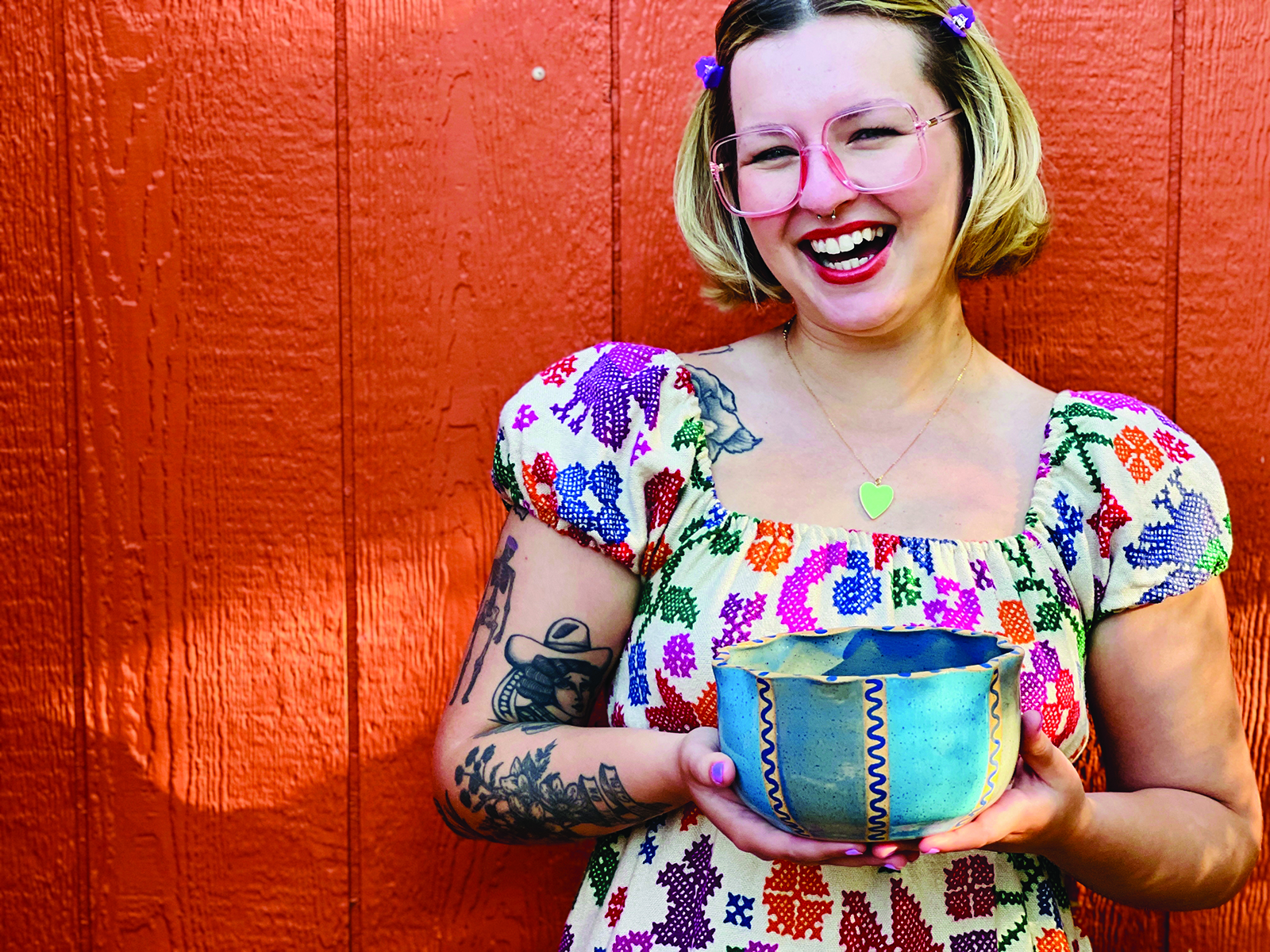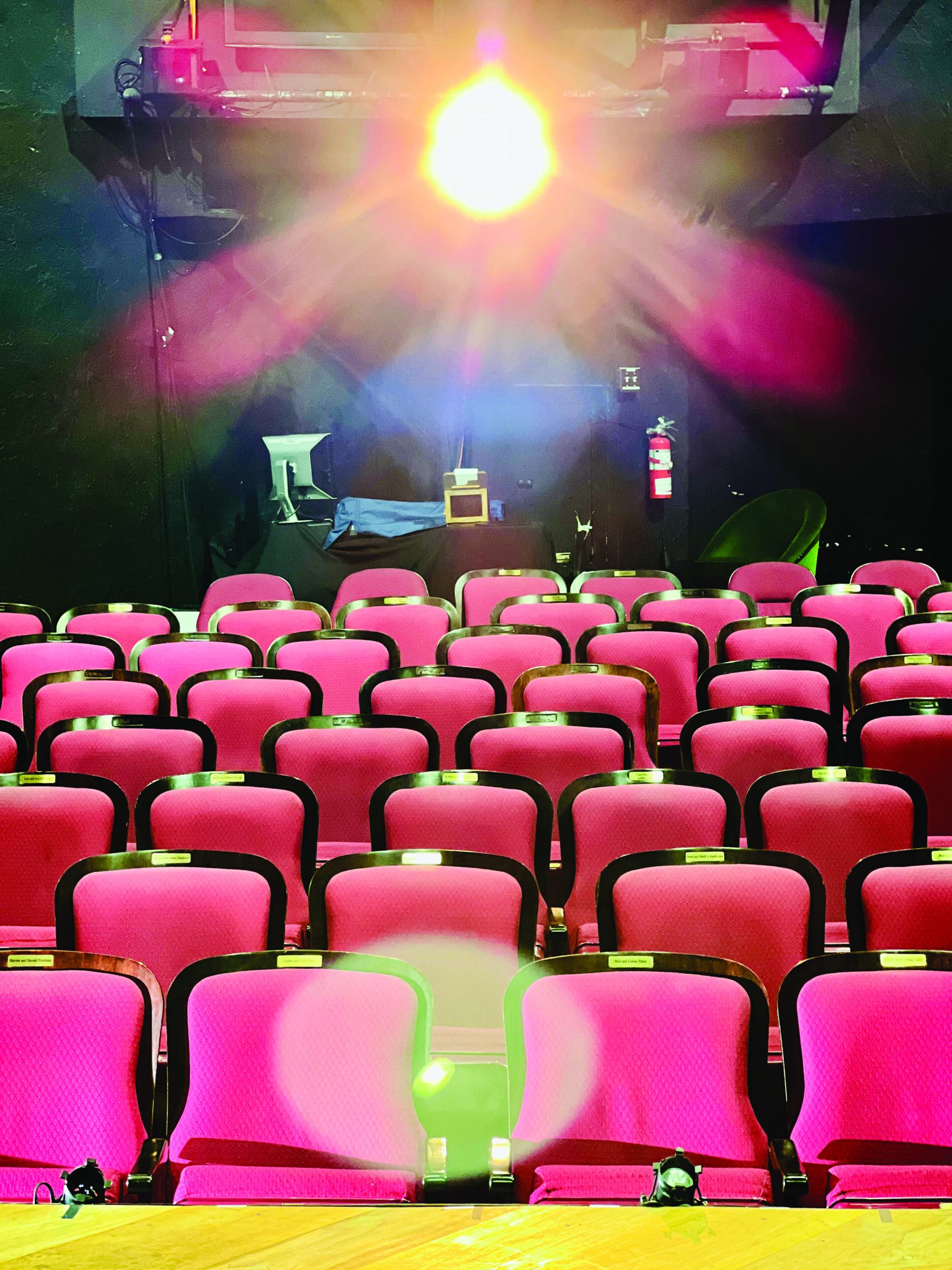By Nancy D. Lackey Shaffer
There are few physical pursuits as demanding as mixed martial arts (MMA). Competitors engage in hand-to-hand combat, calling upon skills in boxing, jiu-jitsu, judo, karate, kickboxing, Muay Thai, taekwondo and wrestling to bring their opponents down. MMA requires mastering a variety of techniques as well as developing cardiovascular fitness and building up strength and stamina. It’s not for the faint of heart, but it’s a great way to stay in shape.
If you’re going the professional route, the standards are even higher. A top MMA fighter requires an exceptional level of skill and fitness, and must employ speed, flexibility, intelligence and power to be a contender in the ring.
Rising MMA star Tabatha Ricci, 26, packs all this and more into a deceptively diminutive frame. At just 5 feet, 1 inch tall and 115 pounds, she competes in the strawweight division of the Legacy Fighting Alliance and took part in her first Ultimate Fighting Championship fight on June 5 in Las Vegas. Called “Baby Shark” on the MMA circuit, she’s known as a fierce competitor that’s particularly strong in Brazilian jiu-jitsu and judo (she has a black belt in both) and a force to be reckoned with when grappling on the mat. She has two world titles to her name (a blue belt in Brazil and a purple belt in Irvine) among a list of other wins and titles here and abroad. She currently lives and trains in Ventura.
From Brazil to Japan
A native of Brazil, Ricci was born and raised in the city of Birigui, in the state of São Paulo.
“I got involved because of my dad [Carlos Salto] — he’s a black belt in judo,” Ricci says.
Martial arts have been a big part of her life from a very young age. She started with judo at age 6, learned Muay Thai at 15 and then Brazilian jiu-jitsu (BJJ) at 17. She won the Brazilian Nationals in Muay Thai in 2013. Her first professional fight took place when she was 18.
“We don’t have a lot of amateur fights in Brazil,” Ricci explains. “My first MMA fight was through my Muay Thai gym.”
Her mother expressed concern initially, but her father was very supportive, telling his daughter, “If you’re happy, I’m happy.”
She recalls not lasting “more than a minute” and finishing just the first round. Even so, “it was a great experience! The rush of adrenaline — it’s a great feeling.”
From that moment, she knew she wanted to build a career in MMA.
She competed in Brazil for four years, racking up a series of wins in tournaments across the country. When she was 22, she joined the all-woman martial arts promotion Seiza in Japan.
“It was so different!” Ricci recalls. “I learned English there, but I didn’t speak Japanese, so I had to get a translator. It was very, very interesting.”
Playing in Seiza was distinctly different from MMA in Brazil. For one thing, it’s a team event — fighters rack up total points for the whole group. There’s no weight class. The rules are a little different, too, and events can be won by submission (“Ippon”) as well as point accumulation and knockout.
Japan was an interesting experience and a great training ground, but after a year, Ricci was ready for something different.
“People in Japan are not as warm,” she says. “They don’t touch, they’re very serious people. The food was great, though — that was the best part.”
Paragon of Excellence
Ricci’s next port of call was the United States, which she explains has “the biggest tournaments in jiu-jitsu.” She came to Ventura just shy of her 23rd birthday to work with Ricardo Miller of Paragon BJJ.
Miller, known as “Franjinha” (“little bangs” or “fringe,” named for a comic book character who had a similar haircut), is one of the top BJJ coaches in the world. He himself has a slew of medals, titles and black belts to his name. He came to the Central Coast in 1996 for the BJJ Pan American and ended up staying, founding the Paragon Academy of Brazilian Jiu-Jitsu — first in Santa Barbara in 1998, and then in Ventura in 2002.
Ricci doesn’t just train at Paragon BJJ — she also teaches classes there three days a week. And it’s where she got the nickname “Baby Shark.”
“I have a friend at Paragon, Jamie [James] Smith. He always called me ‘baby shark’ when I showed up at class — because I’m the smallest one in the gym, but I can beat up all the guys!” Ricci says with a laugh.
Life of Ricci
Miller isn’t the only person in her corner. Ricci’s conditioning coach is Alex Jamora of Mavericks Gym. Carl Fronhofer of Ventura County Wrestling Academy oversees her wrestling training and she boxes with Coach Joseph “Hoss” Janik at KnuckleHeadz Boxing.
To stay in fighting shape, she maintains a grueling schedule.
She starts her day at 7 a.m. to wrestle, run, do some cardio, etc. In the afternoons, she does strength training and conditioning. She practices her various MMA techniques for about two hours starting at 7 p.m. Fridays are sparring days, which usually take her to Los Angeles (Black House MMA is one of her regular haunts).
“It’s very hard to find a girl for a training partner here — same size, same weight class,” Ricci explains.
Sunday is her day off, but Ricci views it as active
recovery time. She usually does yoga, stretching, massage and/or meditation.
Her diet is exceptionally healthy, with lots of lean proteins, complex carbohydrates, vegetables and “good” fats.
“We usually cook very healthy, using coconut oil,”
she says.
If she’s preparing for a fight, she goes to a training camp for about two months, where the workout regimen is even more grueling and the diet even more exacting — for example, she won’t salt her food, to avoid water retention.
Training camp doesn’t just turn contenders into lean, mean fighting machines. Typically, fighters know ahead of time who their opponents are going to be, and the camp is customized to give competitors an edge. They study the other fighter’s style, strengths, key moves, etc. — and try to come up with a winning strategy.
Into the Octagon
Training camps are key to getting a fighter in shape. Ricci, however, had to skip this crucial step for her last event. Manon Fiorot of France — another rising MMA star, nicknamed “The Beast” for her size, strength and striking ability — was set to square off against Ukrainian Maryna “The Iron Lady” Moroz at UFC Vegas 28 on June 5. Moroz pulled out last minute, so UFC organizers called up Ricci’s manager to see if she could sub.
“It was just three days [before the fight] and a weight class up,” she recalls. “But it was a good opportunity. Fighting in the UFC, that’s what everyone dreams of. You can’t let the opportunity pass you by!”
Before facing Fiorot, Ricci was undefeated in her MMA career. But with short notice, a bigger (5 feet, 7 inches) and more experienced
opponent in the heavier flyweight weight class, she was definitely the underdog. Ricci lost to Fiorot in the second round, but was praised for her solid effort.
“I learned so much,” Ricci says. “Nobody likes to lose. It was heartbreaking. But coming back from a loss helps me mentally.”
She’s also thrilled that she achieved one of her goals: fighting in a UFC event before her 30th birthday. With her skill, spirit and drive, it’s likely that this will be just the first of many fights in the UFC octagon.
Girl Power
Asked about the rivalry that develops between MMA fighters, Ricci is quick to say, “I don’t like the trash talk.”
“When the adrenaline goes up, you change into a different person,” she continues. “But after that, everyone is friendly . . . At my last fight all my opponents came up to me, we hugged, we cried together. I’m very friendly with my opponents.”
While she and Fiorot didn’t talk after the June 5 fight, Ricci praised the victor in an Instagram post — and Fiorot responded with admiration and respect, saying “You are a true warrior.”
That small interaction says something about the camaraderie that develops among professional athletes in general, and women MMA fighters in particular.
Ricci says that MMA is becoming more popular among women, but the sport still has a ways to go to catch up to the men.
“It’s not an easy sport,” she acknowledges. “But it’s actually growing a lot. I think it’s more interesting to watch girls fighting. I think girls are going to take over this sport — but it’s going to take a little bit of time.”
Her ultimate goal is to “inspire a next generation, the new girls, to not just fight but have a healthy lifestyle . . . use this sport to make a better world for everybody.”
Ricci has plenty of years ahead of her to work on that. At just 26, she has yet to hit her prime, and barring major injuries, women tend to have longer MMA careers than men.
“Ladies can fight into their 40s,” Ricci says. “I can’t wait!”
























